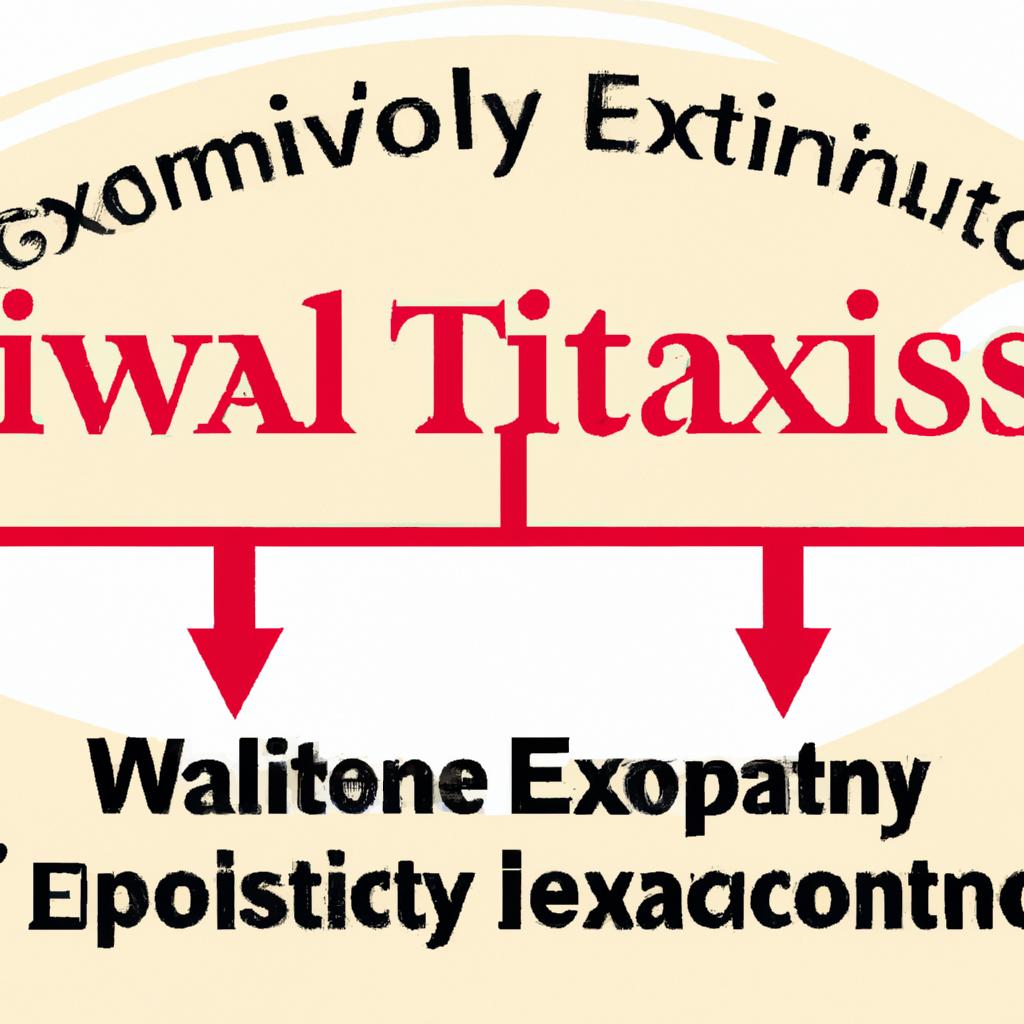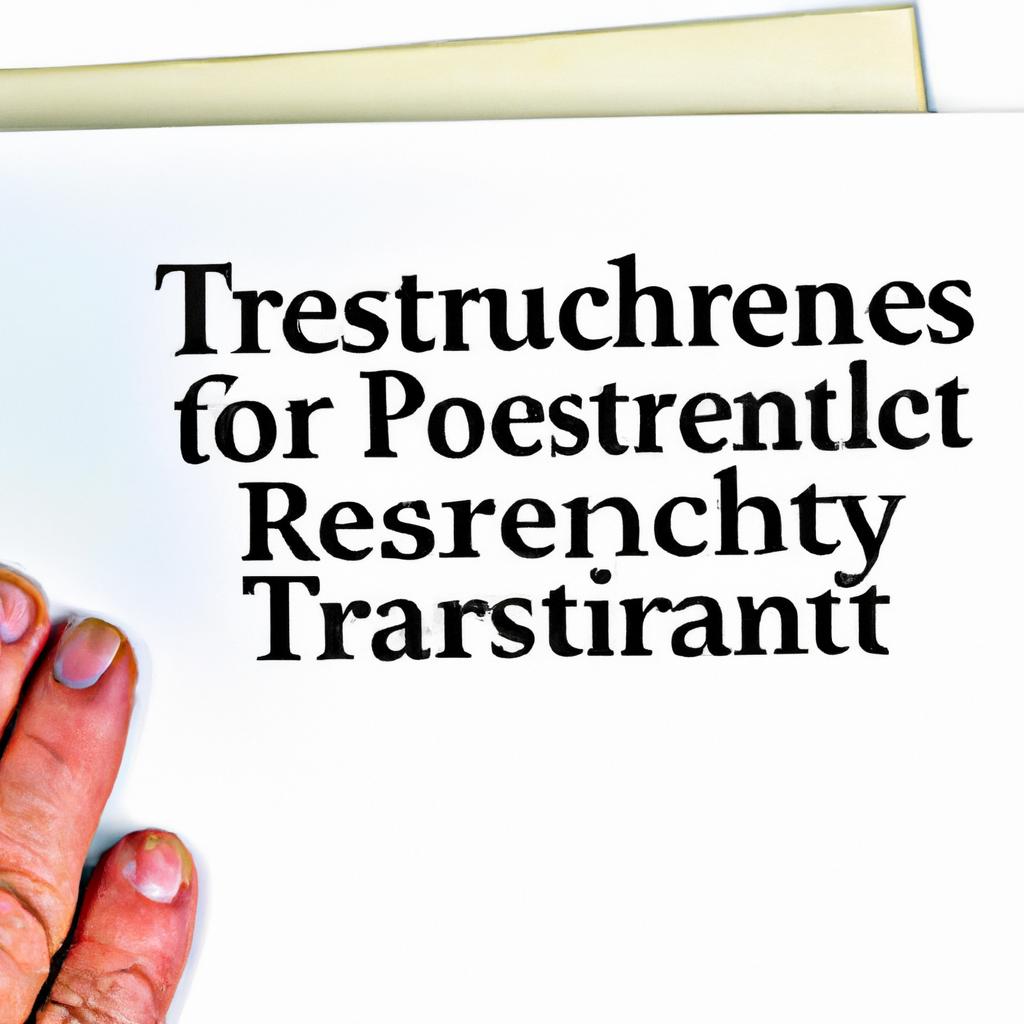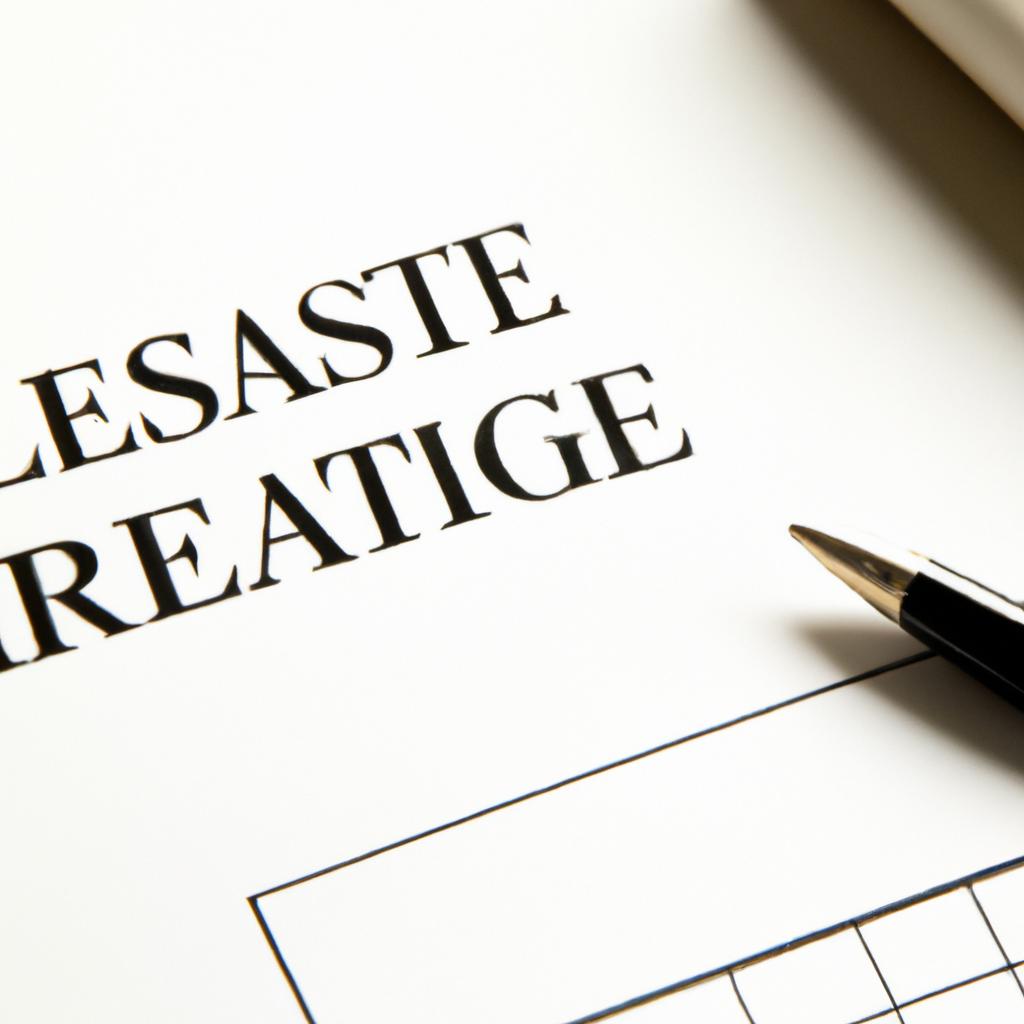In the intricate labyrinth of estate planning, there exist two key instruments that provide a crucial roadmap for the transfer and protection of assets: estate wills and trusts. As seasoned practitioners in the field of wealth management, the Morgan Legal Group boasts a deep understanding of the nuances and complexities inherent in these legal tools. Nestled in the bustling metropolis of New York City, our firm prides itself on guiding clients through the intricate maze of probate, elder law, will drafting, and trust establishment. Join us as we unravel the intricacies of estate planning and delve into the pivotal role of wills and trusts in safeguarding your legacy.
Choosing the Right Executor for Your Estate Plan
When it comes to creating your estate plan, one of the most important decisions you will make is choosing the right executor to carry out your wishes. Your executor will be responsible for managing your estate after you pass away, ensuring that your assets are distributed according to your will. It is crucial to select someone who is trustworthy, organized, and capable of handling the responsibilities that come with being an executor.
Here are some key factors to consider when :
- Trustworthiness: Your executor should be someone you trust implicitly to carry out your wishes and act in the best interests of your beneficiaries.
- Organizational Skills: Managing an estate requires attention to detail and organizational skills. Make sure your executor is someone who is capable of handling complex financial and legal tasks.
- Availability: Your executor should be someone who has the time and availability to dedicate to the role, especially during the probate process.

Maximizing Tax Efficiency Through Trusts and Wills
When it comes to estate planning, utilizing trusts and wills can be a powerful tool in maximizing tax efficiency and ensuring your assets are transferred according to your wishes. Trusts, such as revocable living trusts, irrevocable trusts, and charitable trusts, can help you reduce estate taxes, avoid probate, and protect your assets from creditors. By establishing a trust, you can also provide for minor children or incapacitated beneficiaries in a structured and tax-efficient manner.
On the other hand, wills are essential legal documents that outline how you want your assets distributed after your passing. By drafting a comprehensive will, you can designate beneficiaries, appoint guardians for minor children, and name an executor to oversee the probate process. Wills provide clarity and peace of mind, ensuring that your loved ones are taken care of and that your estate is distributed according to your wishes.

Protecting Your Assets Through Irrevocable Trusts
Irrevocable trusts are a powerful tool for protecting your assets and ensuring they are passed down according to your wishes. By placing your assets in an irrevocable trust, you are essentially transferring ownership of those assets to the trust itself, which can provide a number of benefits:
- Asset Protection: Assets held in an irrevocable trust are shielded from creditors and lawsuits, providing a level of protection that traditional estate planning methods may not offer.
- Probate Avoidance: Since the assets in an irrevocable trust are not considered part of your estate, they can bypass the lengthy and costly probate process, ensuring a quicker distribution to your beneficiaries.
- Privacy: Irrevocable trusts are private documents that do not become part of the public record, unlike wills which are subject to probate court and can be viewed by anyone.
Furthermore, irrevocable trusts can help reduce estate taxes, provide for long-term care planning, and offer greater control over how your assets are managed and distributed. Our team at Morgan Legal Group has extensive experience in creating customized irrevocable trusts tailored to each client’s unique needs and goals. Contact us today to learn more about how an irrevocable trust can be a valuable tool in safeguarding your assets for future generations.

Navigating the Complexities of Estate Planning with Professional Guidance
Creating a well-crafted estate plan involves much more than just drafting a will. It requires an in-depth understanding of the complexities of estate planning laws and regulations. When it comes to safeguarding your assets and ensuring your wishes are carried out after you pass away, seeking professional guidance is crucial. At Morgan Legal Group, our team of experienced attorneys specializes in estate planning, Wills, and trusts. We work closely with our clients to develop personalized strategies that align with their unique financial goals and family dynamics.
When it comes to estate planning, having a comprehensive understanding of the various options available is essential. From establishing a revocable living trust to setting up durable powers of attorney, our experts are well-versed in all aspects of estate planning. By working with our team at Morgan Legal Group, you can rest assured knowing that your assets will be protected and your loved ones will be provided for according to your wishes. Let us help you navigate the complexities of estate planning and secure a bright future for your family.
Q&A
Q: What is the difference between a will and a trust when it comes to estate planning?
A: A will is a legal document that outlines how a person’s assets and belongings should be distributed after their passing, whereas a trust is a legal entity that holds assets on behalf of a beneficiary.
Q: Can I have both a will and a trust in place for my estate?
A: Yes, it is possible to have both a will and a trust as part of your estate plan. They can work together to ensure that your wishes are carried out efficiently and effectively.
Q: Are there any benefits to creating a trust instead of just a will?
A: One of the main advantages of creating a trust is that it can help to avoid probate, which can be a lengthy and costly legal process. Trusts also offer greater privacy and can provide more control over how assets are managed and distributed.
Q: What should I consider when choosing between a revocable trust and an irrevocable trust?
A: When deciding between a revocable trust and an irrevocable trust, it is important to consider factors such as control over assets, tax implications, and the level of protection against creditors. Consulting with a legal professional is recommended to determine the best option for your specific needs.
Q: Can I make changes to my will or trust after it has been created?
A: Yes, both wills and trusts can be amended or updated over time to reflect changes in your circumstances or preferences. It is important to review and update your estate plan periodically to ensure that it remains aligned with your wishes.
Future Outlook
In conclusion, estate wills and trusts are essential tools that can provide peace of mind and security for you and your loved ones. By carefully planning and executing these legal documents, you can ensure that your assets are distributed according to your wishes and that your family members are provided for in the future. Consulting with an experienced estate planning attorney can help you navigate the complexities of the process and create a personalized plan that meets your unique needs. Remember, it’s never too early to start planning for the future and protecting your legacy. Let estate wills and trusts be the cornerstone of your financial planning efforts and secure a solid foundation for yourself and your heirs.







